| State Technical Universities at a Glance (We rated) | |||||||||
| Logo | Name of University | Address | Vice Chancellor! Chairman | No. of Affiliated | Qualification | Schedule of Counselling | |||
 |
All India Council for Technical Education
aicte-india.org |
7th Floor, Chanderlok Building, Janpath, New Delhi-110001 | Prof.(Dr). Avinash S. Pant | B.Tech. | 3384 | Passed XII Class examination from a recognized University | |||
| ?.?? | 3364 | Candidate must have passed bachelor’s degree course of minimum 3 year duration. | |||||||
| Uttar Pradesh Technical University (UPTU) www.uptu.ac.in |
IET Campus Sitapur Rd., Lucknow: 226021, Uttar Pradesh | Prof. (Dr.) Onkar Singh | B.Tech | 272 | Passed XII Class examination from a recognized University with 45% (general) aggregate marks and 40% (SC/ST) Marks. The allowed subject combination in the qualifying examination is Physics and Math as compulsory subjects with any of the Chemistry or Bio-Technology or Biology as optional. | Mid May Onwards | |||
| ?.?? | 431 | Candidate must have passed bachelor’s degree course of minimum three year duration from any recognized university of India with an aggregate of minimum 50% marks for General & OBC and 45% for SC/ ST candidates. | |||||||
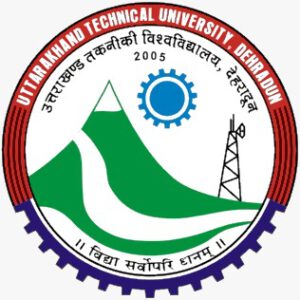 |
Uttarakhand Technical University www.uktech.ac.in | Uttarakhand Technical University, Goverment Girls Polytechnic Post Office, Chandanwadi, Prem Nagar Sudhowala,Dehradun (Uttarakhand) Pin – 248007 | 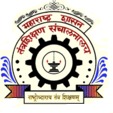 |
Directorate of Technical Education, Maharashtra State www.dtemaharashtra.gov.in |
Mahapalika Marg, Dhobi Talao, Mumbai – 400 001 EPABX: 91-022-22641150/51, 22620601, 2269 0602 Fax: 91-022-2269 2012, 2269 0007 Email: system@dte.org.in | ||||
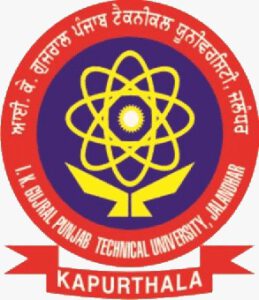 |
Punjab Technical University www.ptu.ac.in | Punjab Technical University. Jalandhar – Kapurthala Highway Near Pushpa Gujral Science City. Kapurthala (Punjab) – 144601 |  |
APJ Abdul Kalam Technological University https://ktu.edu.in | CET Campus, Thiruvananthapuram Kerala -695016 India Phone: +91 471 2598122,2598422 Fax: +91 471 2598522, | ||||
 |
Haryana State Technical Education Society www.hstes.in | Bays No. 7-12, Sector 4, Panchkula, Haryana 134109 | 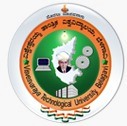 |
Visvesvaraya Technological University vtu.ac.in |
Address: Jnana Sangama, VTU Main Road, Machhe, Belagavi, Karnataka 590018 Phone: 0831 249 8196 | ||||
 |
Rajiv Gandhi Proudyogiki Vishwavidyalaya www.rgpv.ac.in | Airport Bypass Road, Gandhi Nagar, Bhopal, MP-462036 | 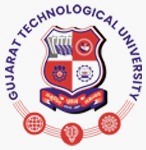 |
Gujarat Technological University
http://www.gtu.ac.in/ |
K-6 Circle, E-4 Electronic Estate, G.I.D.C, Near Govt Polytechnic, Sector – 26, Gandhinagar, Gujarat 382028 Phone: 079 2326 7800, | ||||
 |
Himachal Pradesh Technical University www.himtu.ac.in | Gandhi Chowk, Hamirpur, Himachal Pradesh PIN-177001 |  |
DIRECTORATE OF TECHNICAL EDUCATION (DOTE),
http://www.tndte.gov.in |
SARDAR PATEL ROAD, GUINDY, CHENNAI – 600 025. 044 – 22350525,22351018 | ||||
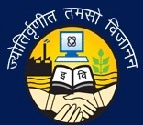 |
Guru Gobind Singh Indraprastha University www.ipu.ac.in | Sector – 16C Dwarka Delhi – 110078, India | 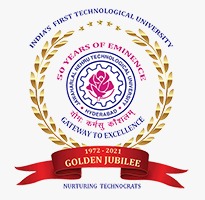 |
JNT University
http://www.jntuh.ac.in |
Kukatpally, Hyderabad 500085. E-Mail: Pa registrar@jntuh.ac.in | ||||
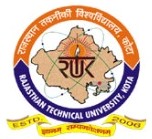 |
Rajasthan Technical University www.rtu.ac.in | Utsch
Akelgarh Rawatbhata Road Kota, Rajasthan, India Pin Code : 324010 |
 |
Maulana Abul Kalam Azad University of Technology http://www.wbut.ac.in | West Bengal BF 142, Sector 1, Salt Lake City Kolkata 700064, West Bengal Phone: (033) 2321 0731 / 1327 | ||||
 |
Chhattisgarh Swami Vivekananda Technical University www.csvtu.ac.in | North Park Avenue, Sector 8, Bhilai, Chhattisgarh 490009 |  |
Aryabhatta Knowledge University
akubihar.ac.in |
Chanakya National Law University Campus, Near Mithapur Bus Stand, Mithapur, Patna-800 001 | ||||
REVIVAL OF CAREER PROSPECTS IN ENGINEERING
With the diversification of careers in Engineering, the sector is expected to grow rapidly. Engineering education must, therefore, innovate to ensure students are ready.
Engineering is a sought-after educational option because of the lucrative career options available after graduation. Over the years, India has established itself as a top destination for Engineering education. The demand for engineering-related courses was sparked by the IT and software boom and the rapid development of the private sector in the early 2000s led to a demand for more engineers. More and more students began enrolling in engineering programmes leading to the establishment of newer colleges.
But, over time, the number of new institutions became directly proportional to the number of unemployed graduates, resulting in stagnant career prospects, and rampant unemployment. From a time when engineers were recruited mostly for public sector jobs to the evolution of industrialisation leading to mass recruitment in the private sector, the scope of careers in engineering has diversified.
At a time of employment stagnation, the stream demands more innovations in terms of job creation, customised role creation for specific fields, and curation of specific courses and skillset training to hone the skills of the students even further.
Newer options
At present, the scenario is fast-changing, and start-ups and other entrepreneurial-driven companies have started a trend of revitalising engineering-related occupations. We are now witnessing the emergence of new job titles such as Product Engineers and Data Scientists, among others. Contrary to popular belief, the stream is evolving faster than ever in response to current trends and demands.
Courses such as Food Process Engineering, Medical Electronic Engineering, Mechatronics Engineering, Agricultural Engineering, and Solar Engineering are just a few examples of streams being curated to suit careers in very specific yet in-demand career roles. Medical Electronics is a new course that was created in view of the ongoing healthcare crisis. The scarcity of resources in the face of a massive healthcare crisis was evident, leading to pharmaceutical businesses and hospitals modernising facilities and expanding the spectrum of job options in the medical engineering field, making Medical Electronics a growing specialisation.
Despite the negative impact of the pandemic, engineering as a career option is making a comeback as the economy slowly regains momentum. With the demand for automation and increased interconnectivity growing rapidly, students need to be aware of current technological developments such as AI, ML, Data Sciences, and the Internet of Things (IoT) that are going to be the primary driving force in the education, healthcare, manufacturing, and the construction sectors, in the coming years.
The 3M’s State of Science Index 2021 recently revealed that the pandemic has revived interest in STEM fields among Indians, who have also become more ecologically sensitive. Also, with the fast-paced development of start-ups and similar small-business driven organisations, Engineering is expected to pick up its pace positively and see massive growth levels in the next few years.
The writer is Chairman of SRM Group, Chancellor of SRM University Delhi NCR, and Pro-Chancellor of SRM University Chennai
DIFFERENT ENGINEERING DEGREES
Engineering is a broad term that covers a wide range of applications and industries. Combining mathematics, science and technology, engineers produce creative solutions to real world problems. As a result there are many different types of engineering degrees available. Earlier, Engineering was divided into four major branches— Mechanical, Chemical, Civil and Electrical—with sub branches of each discipline. But now the number of such degrees has increased dramatically. There are now six major branches— Mechanical, Chemical, Civil, Electrical, Management and Geotechnical, and literally hundreds of different subcategories under each branch.Following are the most popular engineering degrees sorted by branch of engineering :
• Computer Engineering Degrees
• Electrical Engineering Degrees
• Mechanical Engineering Degrees
• Civil Engineering Degrees
• Environmental Engineering Degrees
• Geotechnical Engineering Degrees
• Online Engineering Degree
• Engineering Management Degrees
• Architectural Engineering Degrees
• Biomedical Engineering Degrees
• Project Management Degrees
• Chemical Engineering Degrees
Types of Mechanical Engineering Degrees
• Mechanical Engineering Degree
• Aerospace Engineering Degree
• Biomedical Engineering Degree
• Biomechanical Engineering Degree
• Automotive Engineering Degree
Types of Civil Engineering Degrees
• Civil Engineering Degree
• Structural Engineering Degree
• Architectural Engineering Degree
Types of ELECTRICAL Engineering Degrees
• Electrical Engineering Degree
• Computer Engineering Degree
• Electronics Engineering Degree
• Mechatronics Engineering Degree
• Robotics Engineering Degree
• Microelectronic Engineering Degree
Types of Chemical Engineering Degrees
• Chemical Engineering Degree
• Environmental Engineering Degree
• Materials Science Engineering
Degree
• Agricultural Engineering Degree
• Paper Engineering Degree
• Sustainability Design Degree
Types of Engineering MANAGEMENT Degrees
• Engineering Management Degree
• MBA in Engineering Degree
• Industrial Engineering Degree
• Systems Engineering Degree
• Manufacturing Engineering Degree
Types of GEOTECHNICAL ENGINEERING Degrees
• Petroleum Engineering Degree
• Geological Engineering Degree
• Nuclear Engineering Degree
• Marine Engineering Degree
• Engineering Physics
• Photonics Engineering Degree
• Nanotechnology Engineering
• Mining Engineering Degree
• Ceramics Engineering Degree
• Metallurgical Engineering Degree
• Geomatics Engineering Degree
• Project Management Degree
• Engineering Degrees by Degree Level
• Undergraduate Engineering Degrees
• Graduate Engineering Degrees
ENGINEERING EDUCATION IN INDIA : 4 EMERGING TRENDS
Every year, a new trend in India’s education system arises. There was a period not long
ago when medical and engineering courses were the most popular among students. Those days, however, are long gone, and a transition has occurred in which an increasing number of students are eager to explore sectors that highlight their skills, talents, and interests. Despite this, engineering as a course has not lost its lustre over the years, and a huge number of students continue to enrol as a result of emerging technologies. Many universities and colleges are increasingly using new and improved teaching methods, such as modern learning labs and technology-enhanced curricula. In order to keep up with worldwide standards, many universities have likewise updated their programmes. The MIT Academy of engineering has been rated as one of the top engineering colleges in pune due to its flexible curriculum and diversity in the style of learning.
The 4 Emerging Trends
A number of technical institutes such as MITAOE have been built across the country in response to the growing number of students interested in engineering. There are other obstacles or issues that fail to provide the appropriate platform for students in the workforce. India, on the other hand, is doing everything it can to reinvent the technical education system in terms of quality and opportunities. For engineering seats at top institutions or colleges, millions of students take
competitive exams like JEE, JEE Main, AIEEE, CET, and others. To cope up with the updated technology and meet the market standards MIT, Pune has inculcated a mix of both core courses and interdisciplinary courses in their syllabus. One needs to have all the skills required to face the challenges of the outside world.
Experiential learning
There is currently a combination of hands-on instruction and traditional lecture learning. Hands-on learning programmes enable students to apply classroom materials in real-world settings such as 3D printing labs and cutting-edge research labs, enhancing their skills and ideas. Students learn
more quickly, comprehend information better, and can handle key problems in a real-world setting.
Industry-specific Programs Many universities and institutes, such as Industry Partner Summit, have included industry-specific engineering
curriculum into their classes. In such programmes, industry executives and lecturers address innovation, cutting-edge technologies and discoveries, tools, and trends in the engineering sector. The courses are then updated on a regular basis to ensure that students have access to the most up-to-date engineering information.
Non-technical Skills Enrollment
Furthermore, in addition to the primary curriculum, engineering students must learn non-technical skills. Universities and colleges are encouraging students to participate in soft-skill courses such as public speaking, professional writing, and job preparation as a result of this. This aids in the development of their leadership, teamwork, and communication skills. Entrepreneurship and Innovation.
Entrepreneurship and Innovation With the help of the participating
industry and institute, incubators, warehouses, and fabrication centres are being built. Initially, industry councils can help and guide the institution until it is self-sufficient. Every engineering school should have a mission to promote entrepreneurship and innovation. This can be accomplished by focusing on specific goals and providing students with new and challenging possibilities.
With the world’s rising globalisation, we must consider how best to provide the finest opportunity for future generations.
Engineering Education in India’s Future
With the world’s rising globalisation, we must consider how best to provide the finest opportunity for future generations.
1. Engineers can help improve urbanisation and overcome obstacles in the fields of healthcare, medicine, infrastructure, education, tourism, economy, energy, and defence, among other things.
2. It is critical that students work on their work-related skills, transdisciplinary programmes, and problem-solving abilities.
3. Engineers that are highly adept at their jobs are in high demand all over the world.
4. Engineers are needed not only in software firms, but also in other areas such as education, banks, healthcare, defence, railways, manufacturing, and research.
5. Upgrade your knowledge of cutting-edge technology in order to improve your creations and the country’s development.
6. Infrastructure, skill-based curriculum, enough resources, practical based learning, employment possibilities, on-the-job training, equal access to education and training, and industry-based material should all be priorities in engineering education.
7. Experts from these industries should be asked to speak and discuss innovation, discoveries, technology, applications, tools, and current trends in the following subjects at industry-related programmes for students.
8. The syllabus and curriculum should be updated on a regular basis to reflect current developments.
9. They should be given opportunities to improve their abilities by participating in brainstorming sessions, presentations, and lectures using technology.
10. Soft skills, as well as technical knowledge, should be developed in order to improve their speaking, writing, and listening abilities.
